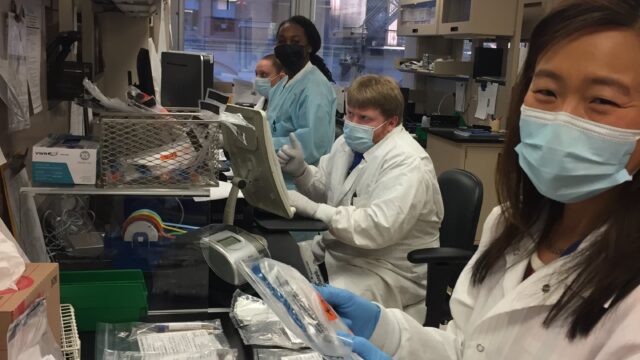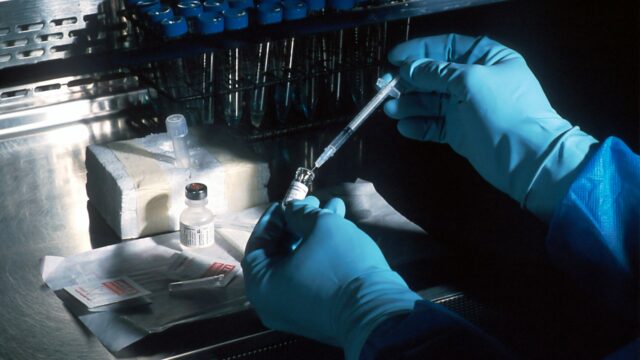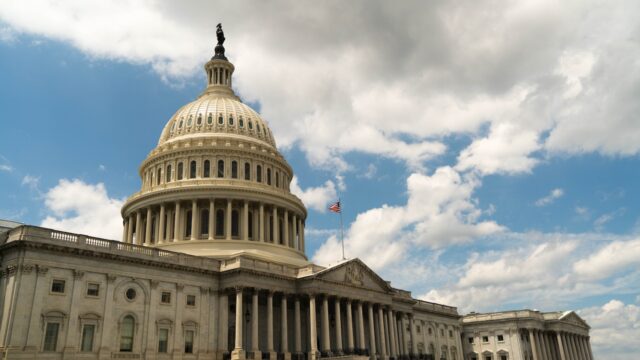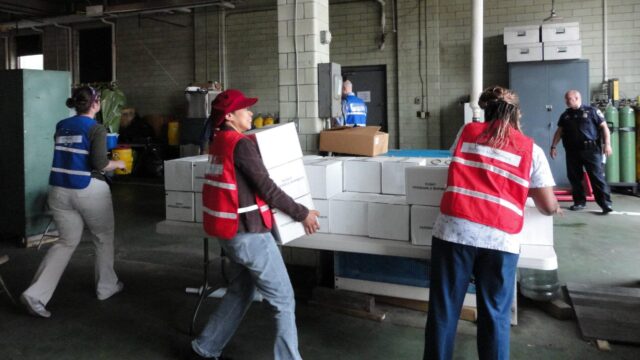BCHC expresses concern over FDA’s propose rule on medical devices and laboratory developed tests
December 2023

BCHC submitted comments to FDA about the proposed rule on Medical Devices; Laboratory Developed Tests (LDTs).
Large cities and counties have public health laboratories (PHLs) to prevent the spread of disease, conduct surveillance, promote health equity, and respond to public health needs. PHLs fulfill these inherently governmental functions by offering LDTs for newborn screening, infectious diseases, foodborne diseases, emergency preparedness and response, and environmental exposure assessment. They are employed when there is no FDA-approved alternative test; when FDA-approved tests cannot meet the unique population, specimen type, or testing volume needs of a PHL; or when an FDA-approved drug’s efficacy needs to be determined for a different indication.
We appreciate FDA’s efforts to increase oversight of LDTs, especially when the results of such tests can be used to inform critical care decisions for patients. We understand that some LDT results can be vulnerable to inaccurate results; however, this consideration must be carefully balanced against the important public health benefits that PHL LDTs provide. As FDA considers comments to the proposed rule, it is critical to the nation’s health that PHLs continue to operate and fulfill their unique mission under the final rule.
BCHC has several concerns about the proposed rule and asks that these concerns be addressed in the development of the final rule and any associated guidance.
As FDA considers comments to the proposed rule, it is critical to the nation’s health that public health laboratories continue to operate and fulfill their unique mission under the final rule.
Unintended Consequences for Responding to Public Health Emergencies
A key component of a county or city’s capacity to respond to an outbreak is the availability of functional lab developed tests (LDTs) that can rapidly and accurately detect pathogens. PHLs can use LDTs not just to detect infectious diseases but also foodborne illnesses and biological and chemical agents. PHL LDTs have been developed for rare threats of high consequence, often utilizing automated high-throughput steps optimized to test for multiple pathogens to allow for rapid response not possible under the proposed framework. In urgent scenarios, like pandemics, novel infections, or biological or chemical threat agents, it is potentially harmful to patient populations and communities to prohibit or delay the use of these validated LDTs, jeopardizing the mitigation of further spread of highly infectious diseases or chemical exposure reduction efforts and medical treatment. It may also complicate the effort to improve the National Laboratory System.
Jeopardizing LDTs for Drug-resistance and Antimicrobial Susceptibility
PHLs utilize LDTs to test for drug-resistance and where antimicrobial susceptibility and efficacy must be determined for drugs that may be FDA-approved for a different indication. Many LDTs are utilized for prompt diagnosis, treatment, and transmission prevention. This is especially important in cases of antimicrobial-resistance or with invasive strains, such as Mycoplasma genitalium, Chlamydia trachomatis lymphogranuloma venereum, and Neisseria gonorrhoeae. Removing access to these LDTs could result in increased spread of resistant strains.
PHLs perform multidrug-resistant tuberculosis (MTB) antimicrobial susceptibility testing to some drugs that are not FDA-approved for treating MTB. However, those drugs have demonstrated efficacy and serve a critical role in treating drug-resistant TB. Adding additional steps to the test implementation process for PHLs could inhibit important developments of this kind.
Detrimental Impact on Public Health Surveillance and Outbreak Monitoring Activities
BCHC appreciates the proposed rule provides for limited continued enforcement discretion of public health surveillance tests in connection with disease prevention and control where the results are not reported to the patient or provider; however, PHLs participate in multiple disease monitoring efforts where report back is critical to the success of the program. Clinical laboratories and providers are incentivized to send specimens to PHLs for these projects because they receive the test results; eliminating that opportunity will reduce buy-in, lead to poor data collection, and limit the public health response.
Staffing and Financial Concerns
During the height of the COVID-19 pandemic, the U.S. experienced a failure in its testing infrastructure. People waited in line for hours to get tested for COVID-19 and waited upwards of three weeks to receive their results. Testing sites and PHLs were understaffed, under resourced, and ill-equipped to handle the enormous volume of COVID-19 tests needed to be processed. The U.S. has the opportunity to fix this, but BCHC is concerned that the FDA’s proposed rule would further strain PHLs by subjecting Class III LDTs to the premarket approval process under the Food, Drug and Cosmetic Act.
A vast majority of PHLs have never applied for FDA premarket approval or 510(k) documentation. PHLs barely have the staff and financial resources to process the tests needed to conduct comprehensive bio-surveillance. As currently written, the FDA’s proposed rule would force many PHLs to divert their limited number of staff away from their public health obligations and towards time-consuming applications. Or, many PHLs would be forced to hire additional administrative staff, draining their finances further. Either action will lead to longer delays in testing and hinder the next response to a public health threat, as well as ongoing, routine activities.
Burdensome Reporting Requirements
BCHC is concerned that the FDA’s proposed rule will impose burdensome regulatory requirements on PHLs. PHLs would have a year to put a system in place to ensure that they can comply with medical device reporting requirements when the first phase of enforcement discretion is terminated. In the following years, PHLs would need to implement a robust premarket review system that can gather clinical and analytical validity of an LDT. These evidence-generating processes are expensive and time consuming for PHLs to conduct and for the FDA to review. This will incentivize researchers, scientists, clinicians, lab technicians, and other staff at PHLs to only offer LDTs already approved for use.
The long-term consequences for this will be severely limiting access for many patients and tying the hands of PHLs if/when a novel pathogen emerges. BCHC appreciates the need for oversight and the FDA’s commitment to protect patient health. While well-intentioned, BCHC believes the costs of premarket approval and associated compliance will outweigh the benefits of an agile PHL system that can quickly adapt to emerging public health threats.
Request for Continued Enforcement Discretion
The proposed rule would have a detrimental impact on public health where essential testing is often only offered as LDTs. Many LDTs for rare agents and diseases have a high cost and low demand and there is low likelihood conventional manufacturers will seek FDA approval because production of the tests do not have a sufficient economic benefit. PHLs need continued enforcement discretion for tests of public health significance so public access to this testing is not limited or eliminated. PHLs do not profit from LDTs, and the net expense associated with them makes it unlikely the testing would be conducted elsewhere. PHLs perform LDTs for the sole benefit of protecting public health.
Read the comments
Download now Read the comments

